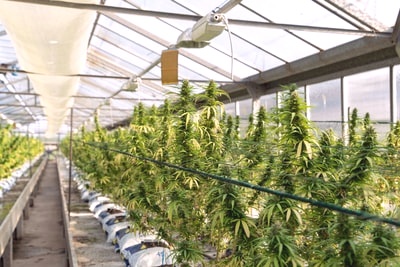The U.S. cannabis industry has seen major growth over the last few years in regard to both new legalizations across the country and record-breaking retail sales year-over-year. However, banking and payments have largely remained a stagnant and ongoing hurdle for cannabis operators. Unlike other legal, regulated industries in the U.S., cannabis operators have numerous security risks to take into consideration, due to their need to store and handle large amounts of cash. Outdated and misinformed, the industry is barred from operating with credit cards, bank cards, and other kinds of banking services, despite cannabis business owners paying their state government for licensure to operate.
Risk for cannabis operators has been somewhat reduced in the last few years, as credit unions and smaller local banks have opted to take on some of the risk and work with these cannabis companies. However, the Financial Crimes Enforcement Network reports that the number of credit unions and banks serving marijuana-related businesses declined in 2020, coinciding with regulatory guidance released at the end of 2019.
With ongoing pushes for state and federal legalization, and with two-thirds of Americans in favor of federally legalizing cannabis, Congress and credit unions alike will have no choice but to completely rethink banking for cannabis this year and beyond.
Continued Deprioritization in Wake of COVID-19
Despite efforts to address cannabis banking reform with COVID-19 relief bills in late 2020, House Democratic leadership chose not to include this particular issue in the latest $1.9 trillion coronavirus package that President Biden signed into law in March. COVID-19 continues to be the primary focus for the majority of the country, with relief bills, vaccination roll outs and distribution, and safety measures as more and more states ease mask mandates and loosen restrictions on businesses at the forefront of the conversation. Until COVID-19 cases are steadily trending downward and at a more manageable level, cannabis legislation will almost certainly continue to take a back seat through the remainder of the year.
This doesn’t mean that banking reform will be completely abandoned, though. Rather than taking a piecemeal approach to reform through COVID-19 bills, we’re likely to see Democrats push for even broader reform and policy change in 2022 through policies like the Marijuana Opportunity, Reinvestment and Expungement (MORE) Act, the Secure And Fair Enforcement (SAFE) Banking Act, and the federal decriminalization of cannabis.
Decriminalization at Federal Level
On the topic of decriminalization, cannabis reform groups across the country have been working tirelessly to encourage states to deprioritize the enforcement of cannabis crimes and arrests as the coronavirus pandemic continues to rage, arguing that unnecessary cannabis arrests are fueling the spread of the virus. With an estimated 40,000 Americans currently incarcerated for cannabis offenses, and one in five U.S. prisoners having contracted COVID-19, many groups are also continuing to push for states to drop existing charges for nonviolent cannabis violations, review and release those currently incarcerated for cannabis convictions, and waive pending probation requirements for cannabis-related cases.
It’s tragic to think that there are still so many people in prison for cannabis-related offenses as the industry itself continues to boom year over year, especially at a time when the federal government has allowed the sale of taxed, and regulated overwhelmingly harmful substances like alcohol, tobacco, and opiates for so many years. Most recently, Senate Majority Leader Chuck Schumer announced that lawmakers are in the process of merging various cannabis reform bills, including his own bill around federal legalization, which would include expunging cannabis records. While 2021 likely won’t see cannabis federally legalized, we’re seeing seismic shifts in terms of legislation and could potentially see this come to fruition in Biden’s first term.
Passage of Cannabis Banking Bills
An important bill for the cannabis industry has been the SAFE Banking Act, which gained notable traction in the last year and only stands to benefit under a Democrat-led Congress and Biden administration. Introduced in 2017, the SAFE Banking Act would protect institutions that want to offer basic banking services to cannabis-related businesses that comply with the laws in the states where they operate. This would be a massive win for cannabis operators, and a critical solution for the lack of financial services available to them, enabling them to obtain banking and insurance services that are currently unavailable.
After passing the House in a landslide, it is almost certain that the SAFE Banking Act will pass in the Senate within President Biden’s first term in the White House. While the focus remains on COVID-19 and vaccine distribution, it’s unlikely that this makes it to the Senate floor in 2021 and more realistic in early 2022. Until then, cannabis operators should continue to make compliance a priority within their businesses, follow strict operating procedures when it comes to cash exchanges, and invest in cash-tracking technologies.
Despite being the most lucrative cannabis market in the world, cannabis remains a prohibited, controlled substance under U.S. federal law. However, the tides are changing and a Democrat-led Congress and Whie House offers promise to the fast-growing industry. We’re likely to see the most favorable federal stance toward cannabis by a sitting president in the coming years and much needed change for operators in the industry.
The post Banking in Cannabis 2021: What to Expect This Year appeared first on Cannabis Business Executive – Cannabis and Marijuana industry news.






